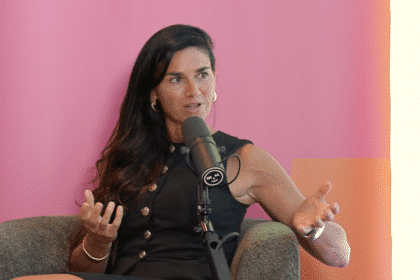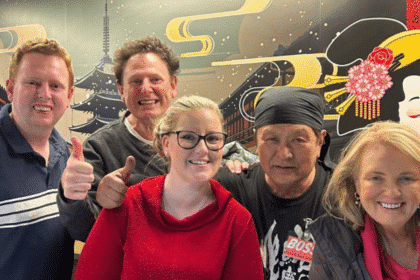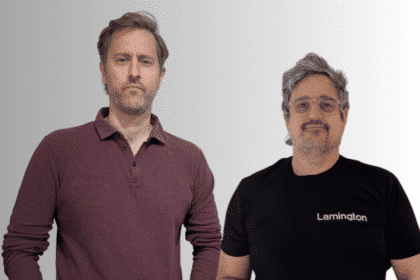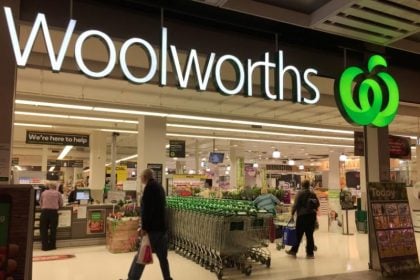Industry leaders descended on Salesforce Tower in Sydney this morning for the launch of the Australian Chapter of Ad Net Zero.
The launch of the chapter has been led by four of the industry’s peak bodies in the Australian Association of National Advertisers (AANA), Advertising Council Australia (ACA), Interactive Advertising Bureau Australia (IAB), and the Media Federation of Australia (MFA)—a kind of support unknown in previous chapter launches around the world.
Australia has been slow on the takeup, something that was acknowledged by the speakers in the room. The UK, for example, was the first to launch Ad Net Zero in 2020. But while Australia has been sluggish, there seems to be a head of steam building under sustainability within the industry.
Josh Faulks, CEO of the AANA, said that “Sustainability is no longer a peripheral issue for brands,” while Gai Le Roy, CEO of the IAB added that the “industry is uniquely positioned” to “tackle the climate crisis – not only by reducing our own environmental footprint but also leading the shift towards sustainable behaviours from businesses and consumers.”
At the launch event this morning, a quartet of speakers from across the marketing supply chain sat down to discuss their views on tackling the problem. James Greet, founder of the Payback Project Australia and former CEO of OMD Australia, moderated.
Caroline Oates, head of YouTube and programmatic sales AUNZ said that while the large portions of the industry needed to be coalescing around Ad Net Zero, it was more important as a starting point than a destination.
“The role of Ad Net Zero is providing more of that standardisation which allows for measurement. I was having an interesting conversation last week about measurement not being the goal. The goal here is the conversations that you spark off the back of that measurement,” she said.
“Measurement is a necessary step to getting there. But it’s the conversations post the measurement and having the space to have them [that will make the difference]. It’s also collaboration and open sharing. We are feeling challenges along the way with this. How do we make sure that we’re learning from each other.”
For Michael Rebelo, CEO of Publicis Australia and New Zealand, ensuring collaboration across industry—and within large organisations like his own—is essential. However, he also believed that it was essential that the industry harness the power of competition to help accelerate change.
Speaking about how Publicis has galvanised its teams, Rebelo explained that it came from a “shared duty of care”.
“That comes down to the purpose and values that our culture is built on. Harnessing and mobilising the teams around that isn’t difficult. We’re fortunate that we’re in a position to invest resources and that we have a dedicated implementation manager,” he continued.
“It’s really important that we have the four industry bodies here. That duty of care that we feel across all parts of the industry is what’s going to help us get the acceleration that we need and enable us to have this open-source mindset. Measurement is really important as well, you can’t reduce something if you don’t know how to measure it.”
However, while being open and honest with the competition is important when tackling a problem with the magnitude of climate change, Rebelo added that the industry should look to foster friendly competition to further accelerate change.
“[Ad Net Zero] is a mid-to-long-term plan and we need that consistency across the industry to help us stay that course and keep democratising the information, the tools, the measurement practices but also a bit of that competitive spirit that we have in here as well. I think that should never go astray,” he said.
Earlier this week, the AANA released the long-awaited revision of its Environmental Claims Code to reduce instances of greenwashing and greenhushing. Almost immediately there were rebuttals saying that the code did not go far enough.
Belinda Nobel, CEO of CommsDeclare, said “Unfortunately this shows that greenwashing won’t be stamped out by self-regulation. Under this Code, Ampol can still advertise carbon-neutral petrol or coal giant Glencore can still say that it is ‘laying the foundations of a low carbon future.'”
Faulks told B&T “The new Environmental Claims Code (the new Code) strengthens, not weakens, the rules and guidance around environmental claims in Australia. It has been strengthened by capturing images, sounds and any broad or vague environmental claims. Advertisers are also now obligated to ensure that any claims about future actions or sustainability targets are realistic, achievable, and based on solid evidence.”
He also added “Rather than cut and paste from the ACCC Guidelines, we have incorporated the whole thing by referring to it in the opening section. This is just a matter of drafting and ComsDeclare have taken the wrong end of the stick when they see that section no longer in our Code. When it comes to high emissions industries advertising, we believe that companies that are making significant and genuine steps towards a low carbon future should be able to communicate these efforts in a manner that is truthful and able to be substantiated.”
This kind of scrutiny can pose problems for brands, agencies, platforms and media owners, alike. Oates, for one, said that Google’s Scope 2 emissions were “unsurprisingly significant”. Fellow panelist Anneliese Douglass, Nestlé’s director of marketing and communications in Oceania, said that 67 per cent of the FMCG giant’s emissions come from agriculture—but noted that it did not own any farms.
Speaking to Rebelo and Oates after the panel, the Publicis head honcho said that there would always be people with “alternate opinions” but the industry needed to think bigger.
“On issues like this, we need to all rise about it. Competitive spirit is great and it’s what fuels and is the lifeblood of this industry. But this is not about how we create competitive advantage, it’s about creating a planet advantage. I don’t think we’ll ever get to the point where we have 100 per cent of the answers. But we’ve got to keep progressing and be open to alternative views,” he said.
Oates, meanwhile, said that Google had been “very open” about its goals, though noted that they were lofty.
“The scrutiny is what’s holding us accountable and our environmental report that comes every year welcomes that,” she said.
“We lay out the work that we’re doing—of which there is a lot and that we’re really proud of—but also the challenges we’re still facing and how we work through that. For us, it is absolutely about progress and not perfection. We’ve got some great ideas on our Scope 2 emissions and demand on the power grid.”
It’s important to remember that the launch of the Ad Net Zero Australia Chapter, with the four industry bodies and a litany of foundation partners, is just that, a foundation. We hope there is plenty more to come.








